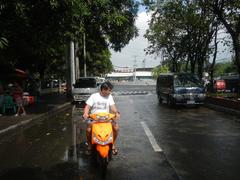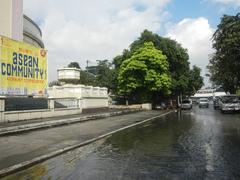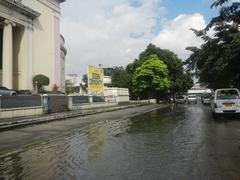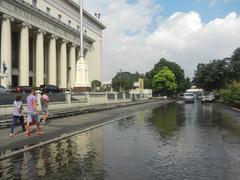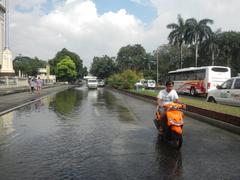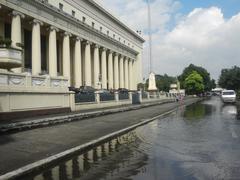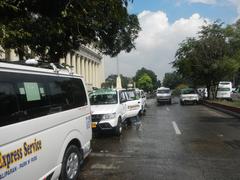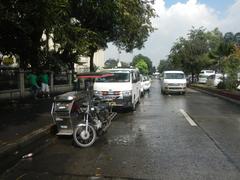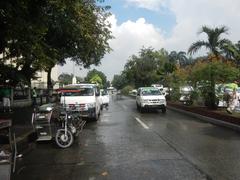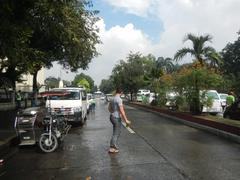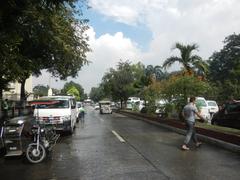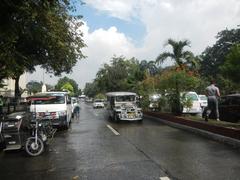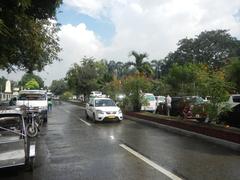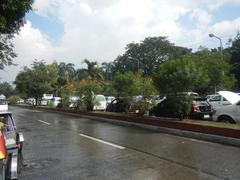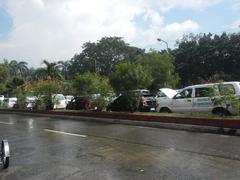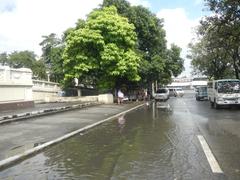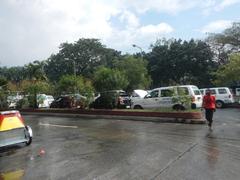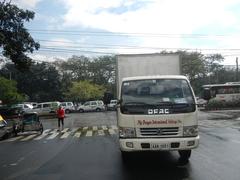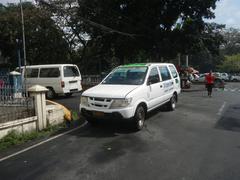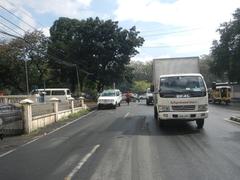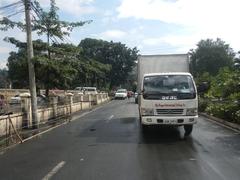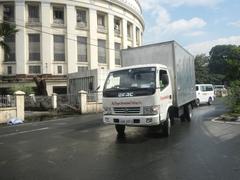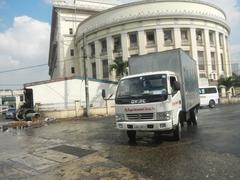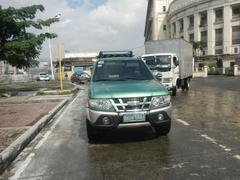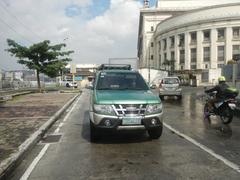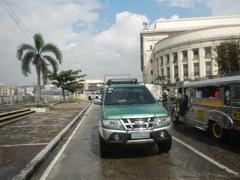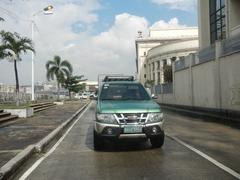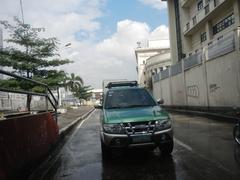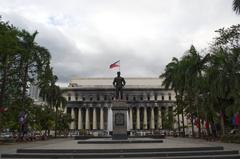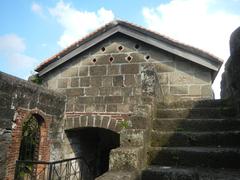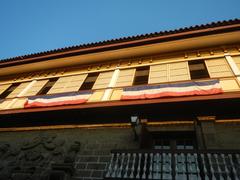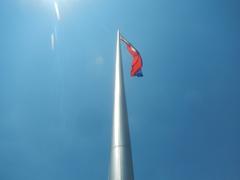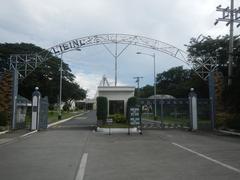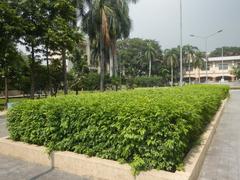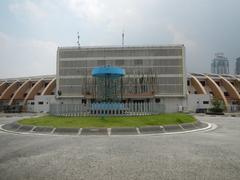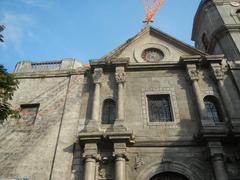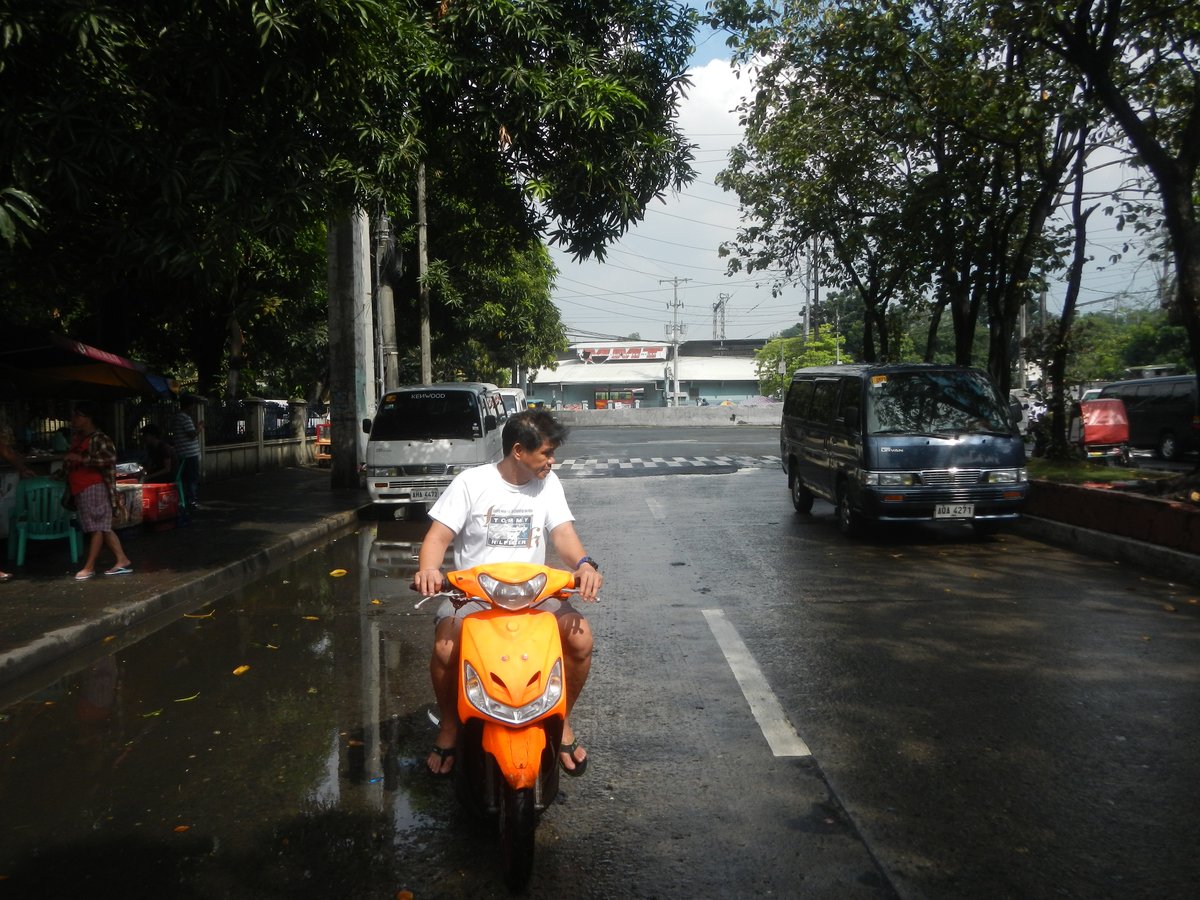
Visiting Liwasang Bonifacio: Hours, Tickets, and Tips
Date: 23/07/2024
Introduction
Liwasang Bonifacio, also known as Bonifacio Square, is a landmark in Taguig, Philippines, dedicated to the Filipino revolutionary hero Andres Bonifacio. This historical and cultural hub serves as a vibrant public space for civic activities, cultural performances, and community gatherings. Named after Andres Bonifacio, the founder of the Katipunan and a key figure in the Philippine Revolution against Spanish colonial rule, the plaza is a testament to the enduring legacy of Filipino resilience and patriotism.
Taguig, where Liwasang Bonifacio is located, has a rich history dating back to its establishment as a town in 1587. Originally an agricultural and fishing community during the Spanish colonial period, Taguig has evolved significantly over the centuries. Today, Liwasang Bonifacio stands as a symbol of the Philippines’ historical journey and its ongoing efforts to balance preservation with modernization (National Historical Commission of the Philippines, Official Website of Taguig City).
This guide aims to provide comprehensive information for visitors, including the plaza’s historical significance, key attractions, practical visitor tips, and nearby points of interest. Whether you are a history enthusiast, a cultural aficionado, or simply looking for a serene place to relax, Liwasang Bonifacio offers a unique and enriching experience.
Table of Contents
- Introduction
- Exploring Liwasang Bonifacio
- Visitor Information
- Educational and Community Engagement
- Future Prospects and Challenges
- FAQ
- Conclusion
Exploring Liwasang Bonifacio
Early History and Establishment
Liwasang Bonifacio stands on land that was originally part of an agricultural and fishing community during the Spanish colonial period. Established as a town in 1587, Taguig’s history is deeply connected to the broader narrative of the Philippines’ struggle for independence.
Andres Bonifacio and the Philippine Revolution
Andres Bonifacio, born on November 30, 1863, founded the Katipunan, a secret society aiming for independence from Spain through armed revolt. This society played a crucial role in the 1896 Philippine Revolution, leading to the declaration of independence on June 12, 1898. Bonifacio’s legacy is commemorated in various landmarks, including Liwasang Bonifacio in Taguig.
Development During the American and Japanese Occupations
During the American colonial period (1898-1946), Taguig saw significant changes, including educational and infrastructure improvements. The Japanese occupation in World War II brought turmoil, with the area around Liwasang Bonifacio becoming a site of resistance and conflict.
Post-War Reconstruction and Urban Development
Post-World War II, the Philippines focused on reconstruction and modernization. Taguig, including Liwasang Bonifacio, underwent substantial urban development. The plaza was revitalized to honor the heroes of the Philippine Revolution and provide a public space for civic activities. The development of Bonifacio Global City (BGC) in the late 20th and early 21st centuries further transformed the area into a dynamic urban center.
Cultural and Historical Significance
Liwasang Bonifacio is a cultural and historical hub, serving as a place for locals and tourists to reflect on the rich history of the Philippines and the enduring legacy of Andres Bonifacio. The plaza hosts public events, including Independence Day celebrations, cultural performances, and civic gatherings.
Preservation and Modernization Efforts
Recent efforts focus on preserving Liwasang Bonifacio’s historical integrity while modernizing the area. These include restoring historical markers, installing informative plaques, and enhancing public amenities, creating a space that honors the past while serving present and future generations.
Visitor Information
Visiting Hours
Liwasang Bonifacio is open to the public daily from 6:00 AM to 10:00 PM.
Tickets
Entrance to the plaza is free.
Travel Tips
- Wear comfortable shoes, bring water, and visit early in the morning or late in the afternoon to avoid the midday heat.
Nearby Attractions
- Bonifacio Global City (BGC): A bustling urban center with shopping, dining, and entertainment options.
- Venice Grand Canal Mall: A picturesque shopping mall with a canal and gondola rides.
- The Mind Museum: An interactive science museum perfect for families.
Accessibility
Liwasang Bonifacio is accessible by public transportation, with nearby bus and jeepney stops. The area is also pedestrian-friendly, with ramps and pathways accommodating visitors with mobility challenges.
Special Events and Guided Tours
The plaza hosts special events such as cultural performances and Independence Day celebrations. Guided tours are available through local tour operators, offering in-depth historical insights.
Photographic Spots
Capture stunning photos at the monuments and sculptures dedicated to Andres Bonifacio and other heroes of the Philippine Revolution. The plaza’s lush greenery and historical architecture provide beautiful backdrops.
Educational and Community Engagement
Schools and universities organize field trips to Liwasang Bonifacio, providing students with a tangible connection to their country’s history. Community organizations use the space for educational programs and cultural activities, fostering pride and awareness among residents.
Future Prospects and Challenges
The future of Liwasang Bonifacio depends on balancing preservation with modernization. Challenges include managing urban development pressures, maintaining historical integrity, and ensuring the plaza remains a vibrant public space. With ongoing community support and government initiatives, Liwasang Bonifacio is poised to remain a vital part of Taguig’s cultural and historical landscape.
FAQ
- What are the visiting hours for Liwasang Bonifacio?
- The plaza is open daily from 6:00 AM to 10:00 PM.
- Is there an entrance fee?
- No, entrance to Liwasang Bonifacio is free.
- What should I bring when visiting?
- Wear comfortable shoes, bring water, and consider visiting early or late in the day to avoid the heat.
- Are there guided tours available?
- Yes, guided tours are available through local tour operators.
- What nearby attractions can I visit?
- Nearby attractions include Bonifacio Global City, Venice Grand Canal Mall, and The Mind Museum.
Conclusion
Liwasang Bonifacio is more than just a public plaza; it is a living monument to the Philippines’ rich history and cultural heritage. From its roots in the Spanish colonial period to its role in the Philippine Revolution and subsequent development as a modern urban center, Liwasang Bonifacio embodies the spirit of Filipino resilience and progress. Visitors can explore historical landmarks, participate in cultural events, and enjoy the serene green spaces that the plaza offers.
The ongoing efforts to preserve and modernize Liwasang Bonifacio ensure that it remains a vital part of Taguig’s cultural landscape. Challenges such as urban development pressures and maintaining historical integrity are being addressed through community support and government initiatives. As a result, Liwasang Bonifacio continues to be a place where the past, present, and future converge, offering a meaningful experience for all who visit (National Historical Commission of the Philippines, Official Website of Taguig City).
Whether you are visiting for its historical significance, cultural performances, or simply to enjoy the tranquil environment, Liwasang Bonifacio promises a memorable and enriching experience. We encourage you to explore this historical treasure and immerse yourself in the rich tapestry of Philippine history and culture.
References
- Exploring Liwasang Bonifacio - History, Visiting Hours, and Travel Tips, 2023, National Historical Commission of the Philippines https://nhcp.gov.ph/
- Exploring Liwasang Bonifacio - Visiting Hours, Tickets, and Historical Significance in Taguig, 2023, Official Website of Taguig City https://www.taguig.gov.ph/
- Visiting Liwasang Bonifacio - Tips, Tickets, and Attractions in Taguig, 2023, Official Website of Taguig City https://www.taguig.gov.ph/
